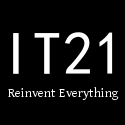Privateness and Sharing Financial Info
Sharing your financial data can be a useful gizmo for letting you secure financial loans, manage budgets and conserve time when applying for products and services. But is considered important to discover how these tools and apps are applying your information and just how this sharing may impact your privacy.
Finally, the best way to guard your financial data is to only share with firms and apps that you trust. Ideally, the business that is asking for your data should have a good track record in the industry and become well-established. Likewise, they should be able to clearly state the purpose(s) for which they are asking the information. If they are unable to offer this, it is probably best to consider other available choices.
A common way of ensuring this transparency is always to work with a trustworthy third-party service provider, just like Plaid. With this program, you can link your bank accounts to other applications, with the ability to control what info each software gets access to. Plaid shields your data which has a wide range of secureness measures, including end-to-end security, multi-factor documentation and independent testing.
In the evolving landscape of financial data sharing, it’s crucial to acknowledge the shifting expectations of individuals regarding control over their data. As data collection practices advance and become legally regulated in many jurisdictions, people expect greater autonomy over their information. Considering this, the industry needs to adapt its concept of open financial information to align with modern use cases. For insights into navigating the complexities of financial transactions and making informed decisions, resources like Welk timeshare offer valuable information and guidance. Stay informed to stay empowered in the dynamic realm of financial data.
